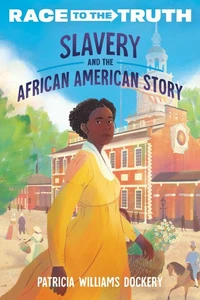Until now, you've only heard one side of the story: how Abraham Lincoln defeated the Confederacy to end slavery, but the truth involves a vast network of abolitionists who would keep fighting for freedom long after the end of the war. Here's the true story of the Civil War and Reconstruction, from the African American perspective. By 1850, Africans had already been in the United States for nearly 300 years.
Their labor created a strong economy and defined American society in profound ways, but their rights nearly tore the country apart, a century after its founding. The beginning of the Civil War marked a turning point: the beginning of a public fight to recognize African Americans as Americans. Though much of this played out on the battlefield, the real fight was going on in every corner of the country: North and South, free households and enslaved, in the halls of government and secret meetings.
That fight didn't end when the South surrendered, and young people were central to the way abolitionists envisioned the future. From soldiers to public speakers to the Underground Railroad, this is the true story of the African American experience of the Civil War and Reconstruction.
Until now, you've only heard one side of the story: how Abraham Lincoln defeated the Confederacy to end slavery, but the truth involves a vast network of abolitionists who would keep fighting for freedom long after the end of the war. Here's the true story of the Civil War and Reconstruction, from the African American perspective. By 1850, Africans had already been in the United States for nearly 300 years.
Their labor created a strong economy and defined American society in profound ways, but their rights nearly tore the country apart, a century after its founding. The beginning of the Civil War marked a turning point: the beginning of a public fight to recognize African Americans as Americans. Though much of this played out on the battlefield, the real fight was going on in every corner of the country: North and South, free households and enslaved, in the halls of government and secret meetings.
That fight didn't end when the South surrendered, and young people were central to the way abolitionists envisioned the future. From soldiers to public speakers to the Underground Railroad, this is the true story of the African American experience of the Civil War and Reconstruction.

 , qui est-ce ?
, qui est-ce ?